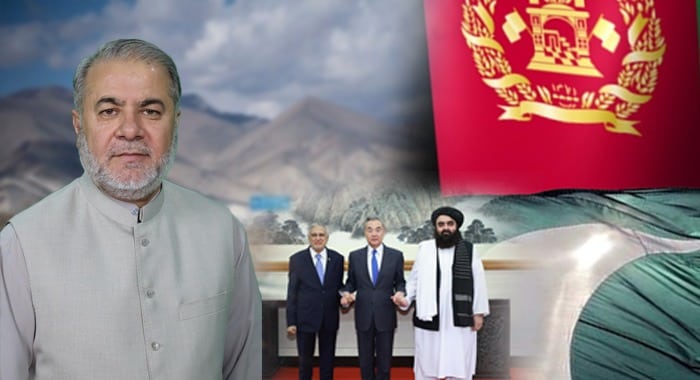Mushtaq Yusufzai
The relationship between Pakistan and Afghanistan has been a complex and tumultuous one, marked by periods of mistrust, miscommunication, and missed opportunities. However, recent developments signal a much-needed thaw in relations, driven in large part by China’s diplomatic efforts. This shift presents a historic chance for the two nations to reset their ties, focusing on meaningful, people-centric policy and regional integration that can benefit both countries and the wider region.
One of the most significant indicators of the improving relationship is the reactivation of high-level diplomatic engagement between Pakistan and Afghanistan. The upgrade of diplomatic missions to full ambassadors is a strategic signal of intent, demonstrating a commitment to sustained dialogue and cooperation. Reciprocal visits by foreign ministers, including Pakistan’s Foreign Minister Ishaq Dar’s visit to Kabul and the expected visit of Afghan Foreign Minister Amir Khan Muttaqi to Islamabad, underscore this commitment.
China’s economic interests in the region, particularly through the China-Pakistan Economic Corridor (CPEC), have introduced an urgency to this diplomatic shift. CPEC’s potential extension into Afghanistan and beyond will require regional peace and cooperation, providing a strong incentive for both countries to work together. China’s influence has nudged both Islamabad and Kabul toward a more pragmatic engagement, recognizing that without security and trust, none of these ambitious connectivity dreams can be realised.
Encouraging signs are emerging on the ground, including a visible de-escalation in tensions along volatile border regions. Skirmishes at Baramcha and other checkpoints, which would have led to border closures in the past, are now being addressed locally without national-level fallout. This restraint shows a level of maturity and an understanding that disruption only harms already suffering border communities and stifles trade.
Furthermore, Pakistan’s recent decision to allow 150 Afghan trucks to carry goods to India is a promising gesture, demonstrating a willingness to prioritize economic cooperation over diplomatic caution. This move not only boosts regional trade but sends a powerful message that economic cooperation can coexist with diplomatic caution.
Security concerns remain a significant challenge, with the threat of terrorism from groups like the TTP and ISIS-K repeatedly undermining trust. However, there are signs that the Afghan Taliban are engaging with these groups, reportedly warning them not to disrupt Pakistan-Afghanistan ties. While more needs to be done, this signals an understanding that the days of hosting proxies must end if peace is to take root.
To realise the potential of Afghanistan’s entry into CPEC, the Taliban government must address pressing issues, including the lack of political inclusivity and severe restrictions on women’s education and participation in public life. These issues are not just moral obligations; they are barriers to Afghanistan’s development and its acceptance in regional frameworks.
Beyond governments, people-to-people connections must be revived through simplified visa processes, rebuilding goodwill and dismantling toxic narratives fueled by vested interests. By fostering people-to-people diplomacy, Pakistan and Afghanistan can create a foundation for lasting peace and cooperation.
With China’s mediation and a shifting regional order, Pakistan and Afghanistan have a rare chance to write a new chapter in their relationship, one rooted in peace, trade, and mutual respect. By seizing this opportunity, both countries can rediscover their shared history and mutual dependencies, leaving war and suspicion behind. The time is ripe for a new era of cooperation, and it is imperative that both nations capitalize on this momentum to build a brighter future for their citizens.
Key Recommendations:
1. Sustained Dialogue: Pakistan and Afghanistan should continue high-level diplomatic engagement, focusing on meaningful cooperation and people-centric policy.
2. Regional Integration: CPEC’s extension into Afghanistan and beyond should be pursued, promoting regional peace and cooperation.
3. Security Cooperation: Both countries should work together to address security concerns, including counter-terrorism efforts.
4. People-to-People Diplomacy: Simplified visa processes and cultural exchanges can help rebuild goodwill and foster mutual understanding.
5. Inclusive Governance: The Taliban government should prioritize political inclusivity and women’s rights, recognizing their importance for Afghanistan’s development and regional acceptance.
By working together and prioritising cooperation, Pakistan and Afghanistan can create a brighter future for their citizens and the wider region.





